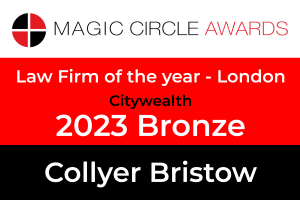- UK/USA Tax & estate planning
- International trusts, tax and estate planning
- Private Equity
- Private Wealth
- Tax & Estate Planning
- UK trusts, tax and estate planning

Shorter Reads
How can I help my children buy a house?
How can you support your children in buying their first home? The Tax and Estate Planning team cover the available options below.
2 minute read
Published 11 October 2021
Key information
The Bank of Mum and Dad supported more than half of first-time buyers under the age of 35 in 2020 and is the sixth largest lender in the UK.
The average amount provided by the Bank of Mum and Dad in 2020 was around £20,000. As a first step, you therefore should ensure you are comfortable that you can afford to provide this level of financial support to your children and that you will not need the funds to supplement your income in retirement.
If you are happy, there are three principal ways parents can provide their children with funds to help them buy a house: outright gifts, trusts, and loans.
Gifts
The principal tax to consider in relation to lifetime giving is inheritance tax (IHT). You can give away up to £3,000 each per year tax-free (£6,000 if you haven’t made any gifts in the previous tax year). You can also make a tax-free gift to a child of up to £5,000 in the year in which they get married.
Larger gifts will be ‘potentially exempt transfers’, commonly referred to as ‘seven-year rule’ gifts. If you survive the gift for seven years, it will fall out of account for IHT but if you were to die within the seven years, the gift will be taxable at 40% (with the potential tax liability tapering down after three years).
You should formally document any substantial gifts in a letter or deed of gift so that there is a record for future reference (a mortgage company may also require evidence of the gift). If your child will be purchasing the property with a partner, you may also consider a cohabitation agreement to determine how the property will be divided if their relationship ends.
Trusts
As further security, you may wish to put the money into a trust (of which you can be the trustees). These days, the principal benefit of trusts is asset protection, rather than tax mitigation. A trust may be especially useful, therefore, if you have any concerns about how your children might manage the money if it is not immediately invested in a house.
Provided you do not put any more than your tax-free allowance for IHT, or ‘nil rate band’ (currently £325,000 each) into trust, there will be no immediate IHT implications of doing so, apart from starting the seven-year clock running to remove the funds from your estates. As trustees, you can continue to control the funds until such time as your children are ready to purchase a property.
The taxation of trusts is a complex area and there will be administration and set up costs to consider. We would always suggest you take legal advice before going down this route.
Loans
An alternative might be to loan the money to your children. This will not reduce your IHT bill (as the loan will instead be an asset in your estates) but does offer a little more control than an outright gift. You should be aware that a loaned deposit may restrict the availability of certain mortgages.
If you later choose to waive repayment of the loan, you will make a gift of the outstanding balance at that point, which will be subject to the seven-year rule for IHT. As with gifts, any loans should be formally documented.
Other ways to help
1. Specialised mortgage products
While not common, there are some mortgage products that might be of assistance, although they are not without their drawbacks
Family Offset mortgages allow for parental savings to be offset against your child’s mortgage debt, reducing their interest payments and making the mortgage more affordable for them. The downside to this is that you will lose access to your savings and will not earn interest while the arrangement is continuing
Guarantor mortgages are another option that allows parents to stand as guarantor for their child’s full mortgage debt, offering their own savings or home as security for their child’s mortgage payments.
2. Buy jointly with your child
You could also buy jointly and/or take out a joint mortgage with your child so that your combined incomes enable them to access a larger loan, albeit you will be equally liable for the repayments.
However, there are some potentially significant tax downsides to this. If you are named as a purchaser and already own a property, you and your children will almost certainly pay an additional 3% in stamp duty. You may also be liable for capital gains tax on your share when the property is sold.
This article is part of a series of lifetime giving articles. Read about charitable giving here.
Related content
Shorter Reads
How can I help my children buy a house?
How can you support your children in buying their first home? The Tax and Estate Planning team cover the available options below.
Published 11 October 2021
Associated sectors / services
The Bank of Mum and Dad supported more than half of first-time buyers under the age of 35 in 2020 and is the sixth largest lender in the UK.
The average amount provided by the Bank of Mum and Dad in 2020 was around £20,000. As a first step, you therefore should ensure you are comfortable that you can afford to provide this level of financial support to your children and that you will not need the funds to supplement your income in retirement.
If you are happy, there are three principal ways parents can provide their children with funds to help them buy a house: outright gifts, trusts, and loans.
Gifts
The principal tax to consider in relation to lifetime giving is inheritance tax (IHT). You can give away up to £3,000 each per year tax-free (£6,000 if you haven’t made any gifts in the previous tax year). You can also make a tax-free gift to a child of up to £5,000 in the year in which they get married.
Larger gifts will be ‘potentially exempt transfers’, commonly referred to as ‘seven-year rule’ gifts. If you survive the gift for seven years, it will fall out of account for IHT but if you were to die within the seven years, the gift will be taxable at 40% (with the potential tax liability tapering down after three years).
You should formally document any substantial gifts in a letter or deed of gift so that there is a record for future reference (a mortgage company may also require evidence of the gift). If your child will be purchasing the property with a partner, you may also consider a cohabitation agreement to determine how the property will be divided if their relationship ends.
Trusts
As further security, you may wish to put the money into a trust (of which you can be the trustees). These days, the principal benefit of trusts is asset protection, rather than tax mitigation. A trust may be especially useful, therefore, if you have any concerns about how your children might manage the money if it is not immediately invested in a house.
Provided you do not put any more than your tax-free allowance for IHT, or ‘nil rate band’ (currently £325,000 each) into trust, there will be no immediate IHT implications of doing so, apart from starting the seven-year clock running to remove the funds from your estates. As trustees, you can continue to control the funds until such time as your children are ready to purchase a property.
The taxation of trusts is a complex area and there will be administration and set up costs to consider. We would always suggest you take legal advice before going down this route.
Loans
An alternative might be to loan the money to your children. This will not reduce your IHT bill (as the loan will instead be an asset in your estates) but does offer a little more control than an outright gift. You should be aware that a loaned deposit may restrict the availability of certain mortgages.
If you later choose to waive repayment of the loan, you will make a gift of the outstanding balance at that point, which will be subject to the seven-year rule for IHT. As with gifts, any loans should be formally documented.
Other ways to help
1. Specialised mortgage products
While not common, there are some mortgage products that might be of assistance, although they are not without their drawbacks
Family Offset mortgages allow for parental savings to be offset against your child’s mortgage debt, reducing their interest payments and making the mortgage more affordable for them. The downside to this is that you will lose access to your savings and will not earn interest while the arrangement is continuing
Guarantor mortgages are another option that allows parents to stand as guarantor for their child’s full mortgage debt, offering their own savings or home as security for their child’s mortgage payments.
2. Buy jointly with your child
You could also buy jointly and/or take out a joint mortgage with your child so that your combined incomes enable them to access a larger loan, albeit you will be equally liable for the repayments.
However, there are some potentially significant tax downsides to this. If you are named as a purchaser and already own a property, you and your children will almost certainly pay an additional 3% in stamp duty. You may also be liable for capital gains tax on your share when the property is sold.
This article is part of a series of lifetime giving articles. Read about charitable giving here.
Associated sectors / services
- UK/USA Tax & estate planning
- International trusts, tax and estate planning
- Private Equity
- Private Wealth
- Tax & Estate Planning
- UK trusts, tax and estate planning
Need some more information? Make an enquiry below.
Enjoy reading our articles? why not subscribe to notifications so you’ll never miss one?
Subscribe to our articlesMessage us on WhatsApp (calling not available)
Please note that Collyer Bristow provides this service during office hours for general information and enquiries only and that no legal or other professional advice will be provided over the WhatsApp platform. Please also note that if you choose to use this platform your personal data is likely to be processed outside the UK and EEA, including in the US. Appropriate legal or other professional opinion should be taken before taking or omitting to take any action in respect of any specific problem. Collyer Bristow LLP accepts no liability for any loss or damage which may arise from reliance on information provided. All information will be deleted immediately upon completion of a conversation.
Close




























































